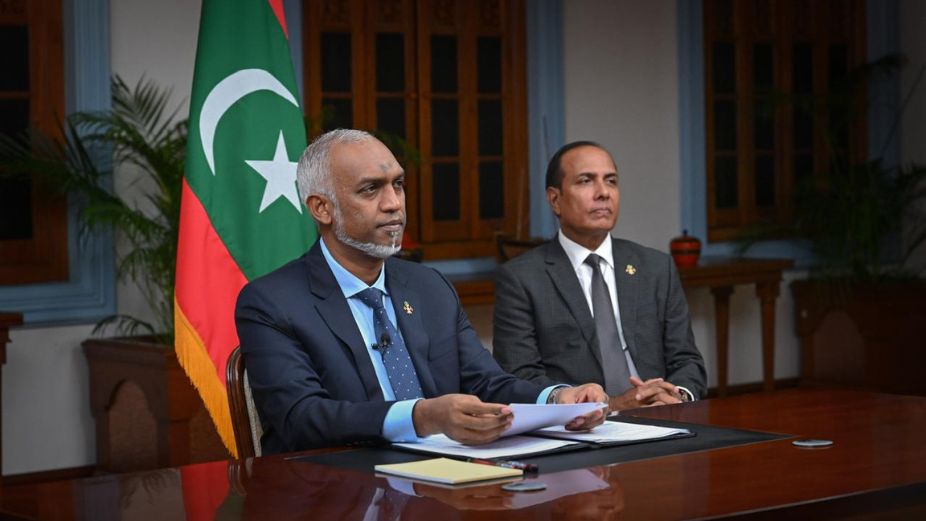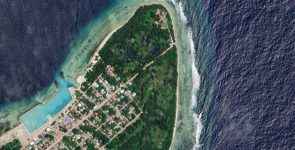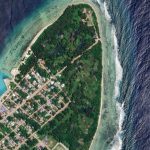
President Dr Mohamed Muizzu has called for the swift operationalisation of the Debt Sustainability Support Service (DSSS), describing it as a crucial step in addressing the growing debt and climate financing challenges faced by Small Island Developing States (SIDS), including the Maldives.
Speaking as Co-Chair of the Strategic Advisory Group of SIDS, President Muizzu opened the session with a strong endorsement of the DSSS, stating that the initiative could usher in a new era of sustainable development for small island nations. He warned that many SIDS are already in debt distress or teetering on the edge, while simultaneously grappling with urgent climate-related vulnerabilities.
“Debt sustainability is not merely a matter of figures—it is about protecting lives, safeguarding livelihoods, and securing our collective future,” President Muizzu said, reiterating the link between fiscal space and resilience-building.
He also referenced the Antigua and Barbuda Agenda for SIDS (ABAS), noting that sustainable and resilient development goals outlined in the agenda cannot be achieved without addressing the structural debt burdens that weigh heavily on many of these countries.
The President pressed for international cooperation to expedite the operational rollout of the DSSS, stressing that multilateral and multi-stakeholder approaches are essential, particularly in light of shifting geopolitical dynamics. He said that traditional development frameworks are no longer sufficient, and called for innovative solutions tailored to the unique vulnerabilities of SIDS.
To this end, President Muizzu promoted the Maldives’ proposed “debt-relief-for-resilience-building” mechanism, which would reward countries investing in climate and disaster resilience by offering debt relief. This approach, he argued, would allow countries to reinvest in sustainability initiatives while meeting carefully defined resilience-building milestones.
He added that such country-led frameworks would allow for the specific needs and sensitivities of each nation to be respected, paving the way for more equitable and effective development strategies.
Looking ahead, President Muizzu pointed to the Fourth International Conference on Financing for Development (FfD4) as a “golden opportunity” to amplify the DSSS and gain broader international support. While many nations have already acknowledged the initiative, he underlined the importance of scaling up implementation through enhanced concessional finance and innovative debt instruments.
The Strategic Advisory Group is jointly led by the Maldives and Antigua and Barbuda, reflecting a collaborative leadership model among SIDS as they push for greater visibility and tailored solutions in the global development agenda.











